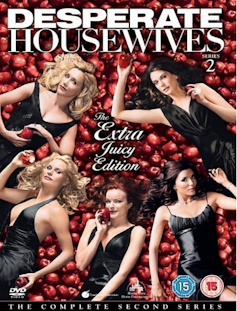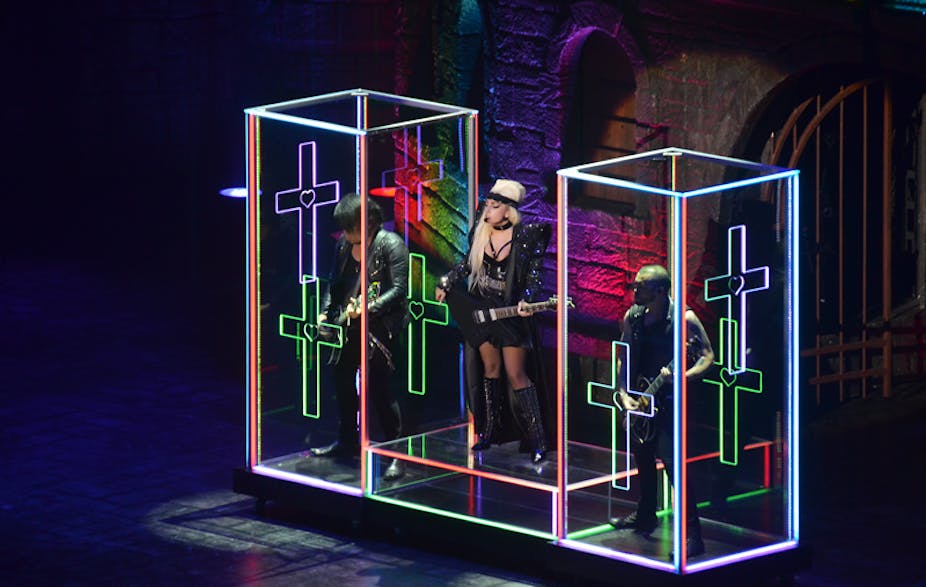Easter is here, and while some might reflect on the resurrection of Christ, I’m wondering at another miracle of sorts that we’re witnessing – the renaissance of the Bible in popular culture. The run up to Easter has been, perhaps unsurprisingly for some, awash with all things biblical. We’ve had the much-hyped release of Noah, which is the first of a spate of Bible films to be released around Christian festivals (next up is Ridley Scott’s Exodus: Gods and Kings at Christmas). A deluge of media followed surrounding its “accuracy” as a biblical film.
And then this week David Cameron outed himself as “evangelical” in flurry of seasonal messages. It seems Cameron’s been on the road to Damascus since 2009 when he offered a rather tepid summary of his religious beliefs as a “fairly classic Church of England faith, a faith that grows hotter and colder by moments”. In the five years since, Cameron, we’re told, has come to believe that “Jesus invented the Big Society 2,000 years ago”. Blimey.
The American Bible Society also timed its annual State of the Bible report to coincide with Easter preparations. In its latest report the society distinguishes between “Bible lovers and sceptics”, with the lovers defined as those “engaged with the Bible” who “Believe the Bible is the actual or Inspired Word of God with no factual errors, or believe the Bible is the Inspired Word of God with some factual errors.”
Bible lovers, the society explains, read the book at least four times per week. Bible sceptics, on the other hand:
Selected the most negative or non-sacred view … saying they believe the Bible is just another book of teachings written by men, containing stories and advice.

The report warns, “now there are just as many Americans sceptical of the Bible as there are engaged with the Bible” and that “50% of all adults believe the Bible has too little influence in society”. Well, not according to our popular cultural output it doesn’t.
Take a look at advertising, fashion magazines, films, pop and hip hop music videos and you’ll see that biblical imagery, characters and stories are everywhere. We can’t get away from them: whether it’s the Desperate Housewives Eve-ing it up in the promotional campaigns for each season, or Monica Bellucci getting biblical for Christian Dior Poison, Lady Gaga declaring her love for Judas (while dressed up as Mary Magdalene), or Russell Crowe looking grizzled and emotionally tortured as Noah, the Bible is everywhere.
Even Kanye West – as well as famously donning a crown of thorns for the cover of Rolling Stone magazine – walked with Jesus, not only in his 2004 album, but during his recent Yeezus Tour when he brought a Jesus “lookalike” (i.e. a bearded white man in a robe) on stage and declared that he’d been looking for Jesus the whole show.
Is it possible then to be an engaged sceptic? While the American Bible Society may be alarmed at the number of Americans who don’t believe in the Bible as the “Inspired Word of God”, surely they can’t argue that they’re not engaged with the Bible – they can’t fail to be. Arguably it’s the lifeblood of western popular culture.
Except that being integral to our most influential modes of cultural production isn’t enough. Earlier this year the UK based Bible Society released its latest research on biblical literacy to the press. It warned that knowledge of the Bible is in decline – alarmingly so – and urged us to “use it or lose it” to stem the tide of biblical ignorance and illiteracy. The Bible Society’s Pass it On campaign to address this fall in levels of biblical literacy encourages parents and grandparents to read Bible stories to children, including via a Bible Bedtime App.

Even this recommendation would take some serious thought: which Bible story to read and how? Do you read straight from the Bible? Read the heavily revised versions in children’s Bibles? The Bible is pretty horrific in places – there’s genocide, gang rape, murder, torture – more than enough to give children nightmares.
But despite the Bible Society’s findings, these stories are woven into the very fabric of contemporary culture. So what does “biblical literacy” even mean? It’s a contested concept that is used frequently and agreed on rarely. Each interest group has a different definition of what they mean by “biblically literate”, but what they all share in common is a lamentation of its dismaying decline.
But contemporary popular culture tells a different story. For example, to “get the joke” in the ad for Bobby’s Taproom Grill the viewer would have to recognise the Bible story of the Adam and Eve, and know that Eve was created from Adam’s rib. Why this would make anyone want to eat a set of ribs, I’ve no idea, but you get the point.
Popular culture then is in a constant state of retelling, reinterpreting and re-appropriating biblical stories, characters and figures. So biblical literacy is alive and kicking – it’s just not in the places or the packages we might expect.

